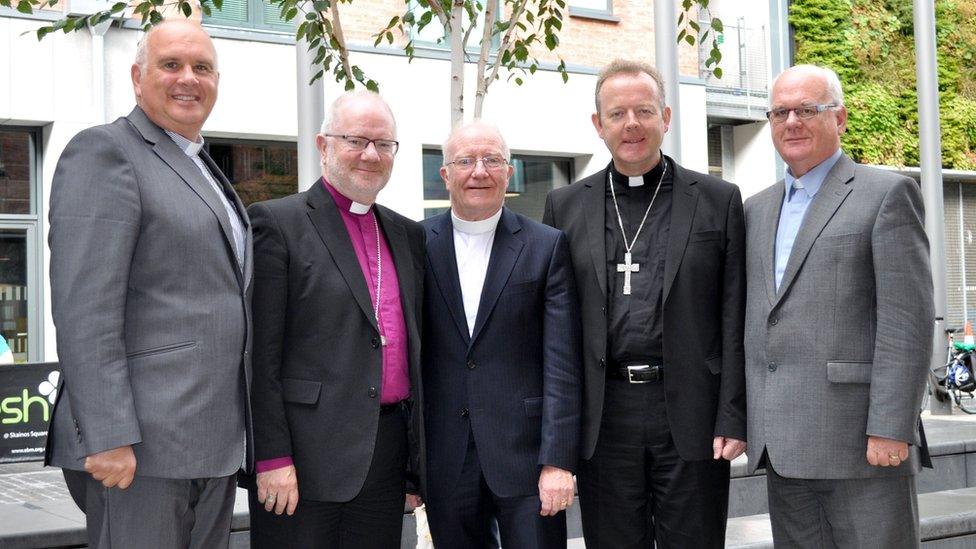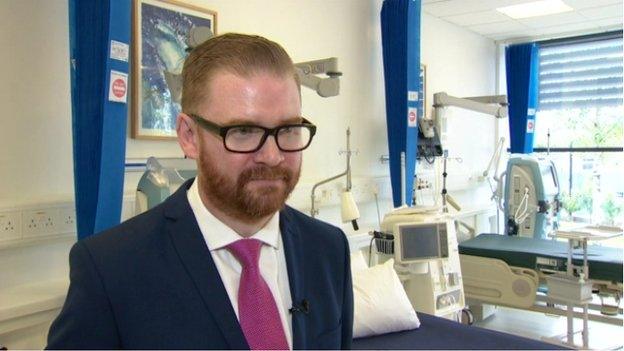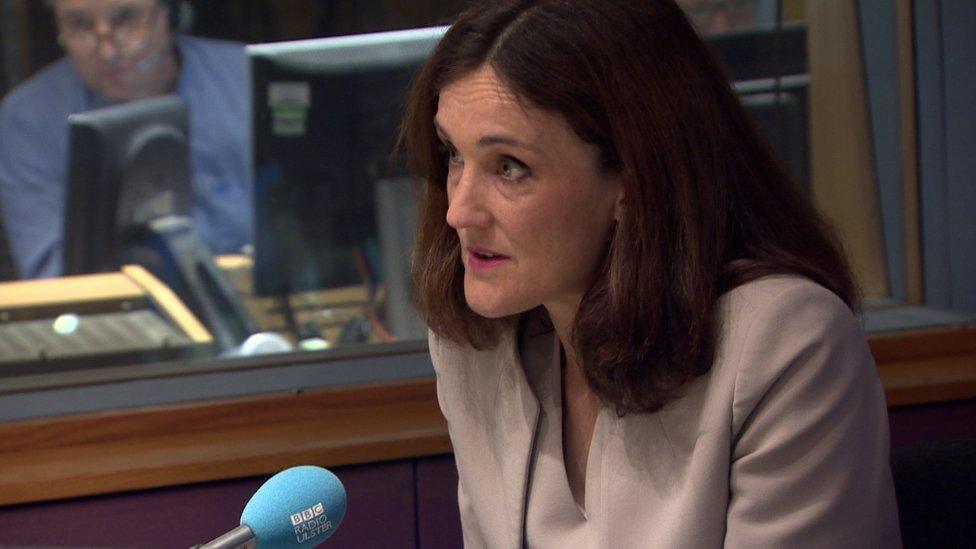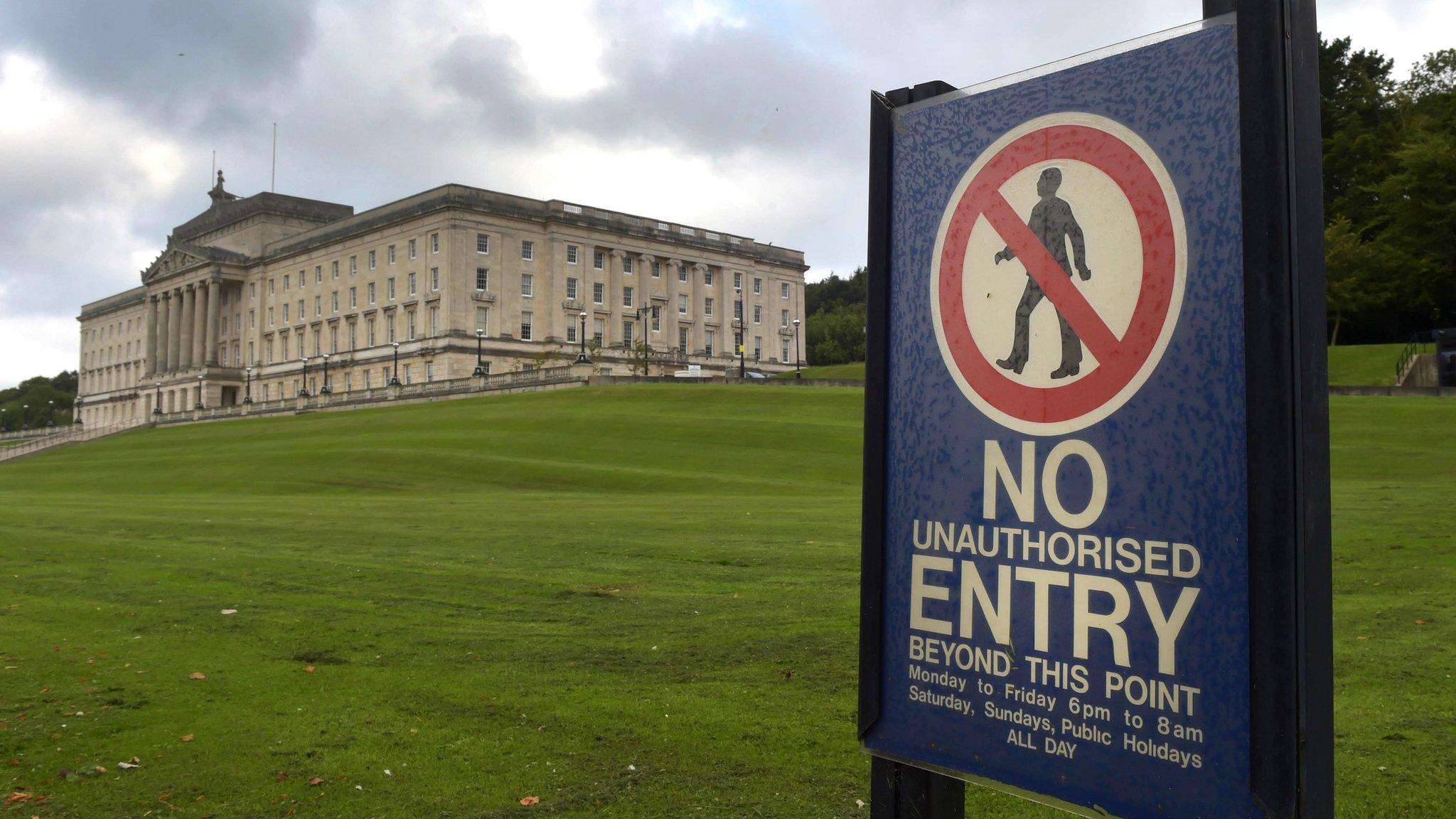Stormont crisis: Church leaders urge politicians to restore hope
- Published

The church leaders said instability at Stormont was causing "anxiety" to those on low incomes
Political instability in Northern Ireland is hurting the most vulnerable in society, church leaders have said.
The heads of the Catholic and Protestant faiths in Ireland came together to urge politicians to take a "critical opportunity" to restore hope.
Northern Ireland's five main political parties have begun talks in a bid to resolve the ongoing crisis at Stormont.
The church leaders said a plan was needed to "to rebuild trust and advance the work of reconciliation".
They added that the current instability at Stormont was bringing "further anxiety" to people "struggling to cope on low incomes".
Threats
Rev Brian Anderson, the head of the Methodist Church in Ireland, Church of Ireland Archbishop Richard Clarke, Catholic Archbishop Eamon Martin, Presbyterian Moderator Dr Ian McNie, and Dr Donald Watts, who presides over the Irish Council of Churches, signed the joint statement.
They said political leaders had to draw up "effective measures to address poverty and socio-economic inequality".
"Threats to the peace process are most keenly felt in those areas that benefited least from the progress of recent years," the statement added.
"In addition to uncertainty about the impact of welfare reform, cuts to essential public services and the failure to agree a budget for future service provision have significant implications for the most vulnerable members of our society."
Negotiations between the parties are due to continue on Tuesday, with unresolved finance and welfare issues featuring on the agenda.
- Published22 September 2015

- Published21 September 2015

- Published13 November 2015
